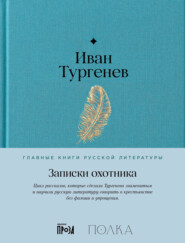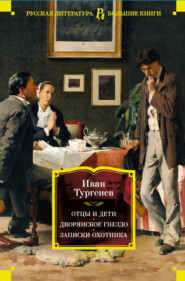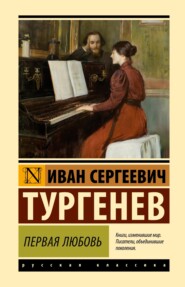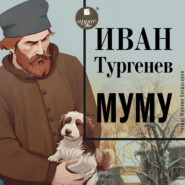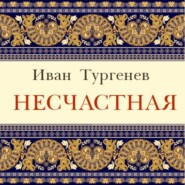По всем вопросам обращайтесь на: info@litportal.ru
(©) 2003-2024.
✖
Fathers and Sons
Настройки чтения
Размер шрифта
Высота строк
Поля
"No."
"That is to say, you prefer physics to anything else?" This from Paul Petrovitch.
"Yes, I prefer physics – in fact, the natural sciences in general – to anything else."
"Well, I am told that the Germanics have made great strides in that department?" (Paul Petrovitch used the term "Germanics" instead of "Germans" ironically, but no one noticed it.)
"True," was Bazarov's careless reply. "In fact, the Germans are, in the same respect, our masters."
"You think highly of the Germans?" Paul Petrovitch's tone was now studiously polite, for he was beginning to feel irritated with the man – his aristocratic nature could not altogether stomach Bazarov's absolute lack of ceremony, the fact that this doctor's son not only knew no diffidence, but actually returned snappish and reluctant answers, and infused a brusquerie akin to rudeness into his tone.
"At least the savants of that part of the world have some energy in them," retorted Bazarov.
"Quite so. And your opinion of our Russian savants is – well, perhaps less flattering?"
"It is, with your leave."
"That constitutes a piece of laudable modesty on your part," Paul Petrovitch observed with a slight hitch of his figure and a toss of his head. "But how comes it about that Arkady has just told us that you recognise no authorities whatsoever? Do you not trust authorities?"
"Why should I? Is anything in the world trustworthy? Certainly, should I be told a fact, I agree with it, but that is all."
"Oh! Then the Germans confine themselves solely to facts?" Paul Petrovitch's face had now assumed an expression of detachment, as though he had suddenly become withdrawn to the ultimate heights of the empyrean.
"No, not all Germans," replied Bazarov with a passing yawn. Clearly he had no mind to continue the controversy. Meanwhile Paul Petrovitch glanced at Arkady as much as to say: "Admit that your friend has beautiful manners!"
"For my own part," he continued, ostentatiously, and with an effort, "I, a fallible mortal, do not favour the Germans. Of course, I am not including in that category the Russo-Germans, who, as we know, are birds of passage. Rather, it is the Germans of Germany proper whom I cannot abide. Once upon a time they used to produce men like Schiller and like – what's his name? – Goethe: for both of which authors my brother has a marked predilection. But now the German nation has become a nation solely of chemists and materialists."
"A good chemist is worth a score of your poets," remarked Bazarov.
"Quite so." Paul Petrovitch hitched his eyebrows a little, as though he had come near to falling asleep. "Er – I take it then that you decline to recognise art, but believe only in science?"
"I have told you that I believe in nothing at all. What after all, is science – that is to say, science in the mass? A science may exist, even as a trade or a profession may exist; but with regard to science in the mass, there is no such thing."
"Very good. And, with regard to such other postulates as usually are granted in human affairs, the attitude which you adopt is negative in the same degree?"
"What is this?" suddenly countered Bazarov. "Is it an examination in tenets?"
Paul Petrovitch turned pale, and Nikolai Petrovitch thought it time to intervene in the dispute.
"Nay, we will debate the subject later," he said. "And then, while recognising your views, good Evgenii Vasilitch, we will state our own. Individually speaking, I am delighted that you should be interested in the natural sciences. For instance, I am told that recently Liebig[9 - Justus Freiherr von Liebig (1803-1873), the great German chemist – in particular, the founder of agricultural chemistry.] has made some surprising discoveries in the matter of the improvement of soils. Consequently you might be able to help me in my agricultural labours, and to give me much useful advice."
"Always I shall be at your service, Nikolai Petrovitch," replied Bazarov. "But what has Liebig to do with us? First the alphabet should be learnt before we try to read books. We have not even reached the letter A."
"You are a Nihilist – that is plain enough," reflected Nikolai Petrovitch; while aloud he added: "Yet allow me to seek your occasional assistance. Brother Paul, I believe it is time that we interviewed our steward."
Paul Petrovitch rose from his chair.
"Yes," he said, without looking at any one in particular, "it is indeed a terrible thing to have lived five years in the country, and to have stood remote from superior intellects! If one is ab origine a fool, one becomes so more than ever, seeing that, however much one may try not to forget what one has learnt, there will dawn upon one, sooner or later, the revelation that one's knowledge is all rubbish, that sensible men have ceased to engage in such futilities, and that one has lagged far behind the times. But, in such a case, what is one to do? Evidently the younger generation know more than we do."
And, slowly turning on his heel, he moved away as slowly, with Nikolai Petrovitch following in his wake.
"Does Paul Petrovitch always reside here?" asked Bazarov when the door had closed upon the pair.
"Yes, he does. But look here, Evgenii. You adopted too sharp a tone with my uncle. You have offended him."
"What? Am I to fawn upon these rustic aristocrats, even though their attitude is one purely of conceit and subservience to custom? If such be Paul Petrovitch's bent, he had better have continued his career in St. Petersburg. Never mind him, however. Do you know, I have found a splendid specimen of the water beetle dytiscus marginatus. Are you acquainted with it? I will show it you."
"Did I not promise to tell you his history?" observed Arkady musingly.
"Whose history? The water beetle's?"
"No; my uncle's. At least you will see from it that he is not the man you take him for, but a man who deserves pity rather than ridicule."
"I am not prepared to dispute it. But how come you to be so devoted to him?"
"Always one ought to be fair."
"The connection I do not see."
"Then listen."
And Arkady related the story to be found in the following chapter.
VII
"Like his brother, Paul Petrovitch Kirsanov received his early education at home, and entered the Imperial Corps of Pages. Distinguished from boyhood for his good looks, he had, in addition, a nature of the self-confident, quizzical, amusingly sarcastic type which never fails to please. As soon, therefore, as he had received his officer's commission, he began to go everywhere in society, to set the pace, to amuse himself, to play the rake, and to squander his money. Yet these things somehow consorted well with his personality, and women went nearly mad over him, while men called him 'Fate,' and secretly detested him. Meanwhile he rented a flat with his brother, for whom, in spite of their dissimilarity, he had a genuine affection. The dissimilarity in question lay, among other things, in the fact that, while Nikolai Petrovitch halted, had small, kindly, rather melancholy features and narrow black eyes, and was of a disposition prone to reading omnivorously, to bestirring himself but little, and to feeling nervous when attending social functions, Paul Petrovitch never spent a single evening at home, but was renowned for his physical dexterity and daring (he it was who made gymnastics the rage among the gilded youth of his day), and read, at most, five or six French novels. Indeed, by the time that he reached his twenty-eighth year Paul had risen to be a captain, and before him there seemed to lie a brilliant career; but everything suddenly underwent a change, as shall be related forthwith.
"Among the society of St. Petersburg of that period there was accustomed to appear, and to disappear, at irregular intervals a certain Princess R. whose memory survives to this day. Though wedded to a highly placed and very presentable (albeit slightly stupid) husband, she had no children, and spent her time between making unexpected visits abroad and unexpected returns to Russia. In short, she led a very curious life, and the world in general accounted her a coquette, in that she devoted herself to every sort of pleasure, and danced at balls until she could dance no more, and laughed and jested with young men whom she received before dinner in the half-light of a darkened drawing-room. Yet, strangely enough, as the night advanced she would fall to weeping and praying and wringing her hands, and, unable to rest, would pace her room until break of day, or sit huddled, pale and cold, over the Psalter. But no sooner would daylight have appeared than she would once more become a woman of the world, and drive, and laugh, and chatter, and fling herself upon anything which seemed to offer any sort of distraction. Also, her power to charm was extraordinary; for though no one could have called her a beauty (seeing that the one good feature of her face lay in her eyes – and even then it was not the small, grey eyes themselves which attracted, but the glance which they emitted), she had hair of the colour and weight of gold which reached to her knees. That glance! – it was a glance which could be careless to the point of daring or meditative to the point of melancholy; a glance so enigmatical that, even when her tongue was lisping fatuous nonsense, there gleamed in her aspect something intangible and out of the common. Finally, she dressed with exquisite taste.
"This woman Paul Petrovitch met at a ball; and at it he danced a mazurka with her. Yet, though, during the dance, she uttered not a single word of sense, he straightway fell in love with her, and, being a man accustomed to conquests, attained his end in this case also. Yet, strangely enough, the facility of his triumph in no way chilled him, but led him on to become more and more resolutely, more and more painfully, attached, and that though she was a woman in whom, even after she had made the great surrender, there still remained something as immutably veiled, as radically intangible, as before – something which no one had yet succeeded in penetrating. What was in that soul God alone knows. Almost would it seem as though she were subservient to a mysterious force of which the existence was absolutely unknown to her, but which sported with her as it willed, and whose whims her mentality was powerless to control. At all events, her conduct constituted a series of inconsistencies, and even the few letters which she wrote to Paul Petrovitch – missives which would undoubtedly have aroused her husband's suspicions had he seen them – were written to a man who was practically a stranger to her. And in time her love began to be succeeded by fits of despondency; she ceased to smile and jest with the lover whom she had selected, and looked at him, and listened to his voice, with reluctance. In fact, there were moments – for the most part, unexpected moments – when this reluctance bordered upon chill horror, and her face assumed a wild, corpse-like expression, and she would shut herself up in her bedroom, whence her maid, with ear glued to the keyhole, would hear issue sounds as of dull, hopeless sobbing. Paul Petrovitch himself frequently found that, when returning home after one of these tender interviews, there was naught within his breast save the bitter, galling sensation which comes of final and irrevocable failure. 'What more could I want?' he would say to himself in his bewilderment; yet always he spoke with an aching heart.
"It happened that on one occasion he gave her a ring having a stone carved in the figure of the Sphinx.
"'What?' she exclaimed. 'Do you offer me the Sphinx?'
"'I do,' he replied. 'The Sphinx is yourself.'
"'I?' she queried with a slow lift of her enigmatical eyes. 'You are indeed flattering!'
"With the words went the ghost of a smile, while her eyes looked stranger than ever.
"Even during the time that the Princess loved him things were difficult for Paul Petrovitch; but when she cooled in her affection for him (as soon happened) he came near to going out of his mind. Distracted with jealousy, he allowed her no rest, but followed her to such an extent that at length, worn out with his persistent overtures, she betook herself on a tour abroad. Yet even then Paul Petrovitch listened to neither the prayers of his friends nor the advice of his superior officers, but, resigning his commission, set out on the Princess's track. Thus four years were spent in hunting her down, and losing sight of her again: and though, throughout, he felt ashamed of his conduct, and disgusted with his lack of spirit, all was of no avail – her image, the baffling, bewitching, alluring image which ever flitted before his eyes, had implanted itself too deeply in his breast. At last – it was at Baden – the pair once more came together; and though it seemed that never had she loved him as she did now, before a month was over another rupture had occurred, and, this time, a final one, as, with a last flicker, the flame died down and went out. True, that the parting would come he had foreseen; yet still he sought to be friends with her (as though friendship with such a woman could have been possible!), and only the fact that she quietly withdrew from Baden, and thenceforth studiously avoided him, baffled his purpose. Returning to Russia, he endeavoured to resume his former mode of life: but neither by hook nor crook could he regain the old rut. As a man with a poisoned system wanders hither and thither, so did he drive out, and retain all the customs of a society habitué. Nay, he could even have boasted of two or three new conquests. But no. What he wanted was obtainable neither through himself nor others, since his whole power of initiative was gone, and his head gradually growing grey. To sit at his club, to consume his soul in jaundice and ennui, to engage in bachelor disputes which failed to interest him – such was now become his sole occupation. And, as we know, it is an occupation which constitutes the worst of signs. Nor, for that matter, seems he to marriage to have given a thought.
"Thus ten years elapsed in colourless, fruitless pursuits. Yet Paul found time pass swiftly, indeed, with amazing swiftness, for nowhere in the world does it fly as it does in Russia (in prison only is its passage said to be still swifter); wherefore there came at length a night when, while dining at his club, he heard that the Princess was dead – that she had died in Paris in a state bordering upon insanity. Rising from the table, he fell to pacing the rooms of the club with a face like that of a corpse, and only at intervals halting to watch the tables of the card-players; until, his usual time for returning home having arrived, he departed. Soon after he had reached his flat there was delivered for him a package containing the ring which he had given to the Princess. The Sphinx on it was marked with a mark like the sign of the cross, and enclosed also was a message to say that through the cross had the enigma become solved.
"These things took place just at the time (early in '48) when Nikolai Petrovitch had lost his wife, and removed to St. Petersburg; and since, also, the period of Nikolai's marriage had coincided with the earlier days of Paul's acquaintance with the Princess, Paul had not seen his brother since the day when the latter had settled in the country. True, on returning from abroad, Paul had paid Nikolai a visit with the intention of staying with him for a couple of months, as a congratulatory compliment on his happiness; but the visit had lasted a week only, since the difference in the position of the two brothers had been too great, and even now, though that difference had diminished somewhat, owing to the fact that Nikolai Petrovitch had lost his wife, and Paul Petrovitch his memories (after the Princess's death he made it his rule to try and forget her) – even now, I say, there existed the difference that, whereas Nikolai Petrovitch could look back upon a life well spent, and had a son rising to manhood, Paul Petrovitch was still a lonely bachelor, and, moreover, entering upon that dim, murky period when regrets come to resemble hopes, and hopes are beginning to resemble regrets, and youth is fled, and old age is fast approaching. To Paul Petrovitch that period was particularly painful, in that, in losing his past, he had lost his all.
"'I shall not invite you to come to Marino,' were Nikolai Petrovitch's words to his brother. 'Even when my wife was alive, you found the place tedious; and now it would kill you.'
"That is to say, you prefer physics to anything else?" This from Paul Petrovitch.
"Yes, I prefer physics – in fact, the natural sciences in general – to anything else."
"Well, I am told that the Germanics have made great strides in that department?" (Paul Petrovitch used the term "Germanics" instead of "Germans" ironically, but no one noticed it.)
"True," was Bazarov's careless reply. "In fact, the Germans are, in the same respect, our masters."
"You think highly of the Germans?" Paul Petrovitch's tone was now studiously polite, for he was beginning to feel irritated with the man – his aristocratic nature could not altogether stomach Bazarov's absolute lack of ceremony, the fact that this doctor's son not only knew no diffidence, but actually returned snappish and reluctant answers, and infused a brusquerie akin to rudeness into his tone.
"At least the savants of that part of the world have some energy in them," retorted Bazarov.
"Quite so. And your opinion of our Russian savants is – well, perhaps less flattering?"
"It is, with your leave."
"That constitutes a piece of laudable modesty on your part," Paul Petrovitch observed with a slight hitch of his figure and a toss of his head. "But how comes it about that Arkady has just told us that you recognise no authorities whatsoever? Do you not trust authorities?"
"Why should I? Is anything in the world trustworthy? Certainly, should I be told a fact, I agree with it, but that is all."
"Oh! Then the Germans confine themselves solely to facts?" Paul Petrovitch's face had now assumed an expression of detachment, as though he had suddenly become withdrawn to the ultimate heights of the empyrean.
"No, not all Germans," replied Bazarov with a passing yawn. Clearly he had no mind to continue the controversy. Meanwhile Paul Petrovitch glanced at Arkady as much as to say: "Admit that your friend has beautiful manners!"
"For my own part," he continued, ostentatiously, and with an effort, "I, a fallible mortal, do not favour the Germans. Of course, I am not including in that category the Russo-Germans, who, as we know, are birds of passage. Rather, it is the Germans of Germany proper whom I cannot abide. Once upon a time they used to produce men like Schiller and like – what's his name? – Goethe: for both of which authors my brother has a marked predilection. But now the German nation has become a nation solely of chemists and materialists."
"A good chemist is worth a score of your poets," remarked Bazarov.
"Quite so." Paul Petrovitch hitched his eyebrows a little, as though he had come near to falling asleep. "Er – I take it then that you decline to recognise art, but believe only in science?"
"I have told you that I believe in nothing at all. What after all, is science – that is to say, science in the mass? A science may exist, even as a trade or a profession may exist; but with regard to science in the mass, there is no such thing."
"Very good. And, with regard to such other postulates as usually are granted in human affairs, the attitude which you adopt is negative in the same degree?"
"What is this?" suddenly countered Bazarov. "Is it an examination in tenets?"
Paul Petrovitch turned pale, and Nikolai Petrovitch thought it time to intervene in the dispute.
"Nay, we will debate the subject later," he said. "And then, while recognising your views, good Evgenii Vasilitch, we will state our own. Individually speaking, I am delighted that you should be interested in the natural sciences. For instance, I am told that recently Liebig[9 - Justus Freiherr von Liebig (1803-1873), the great German chemist – in particular, the founder of agricultural chemistry.] has made some surprising discoveries in the matter of the improvement of soils. Consequently you might be able to help me in my agricultural labours, and to give me much useful advice."
"Always I shall be at your service, Nikolai Petrovitch," replied Bazarov. "But what has Liebig to do with us? First the alphabet should be learnt before we try to read books. We have not even reached the letter A."
"You are a Nihilist – that is plain enough," reflected Nikolai Petrovitch; while aloud he added: "Yet allow me to seek your occasional assistance. Brother Paul, I believe it is time that we interviewed our steward."
Paul Petrovitch rose from his chair.
"Yes," he said, without looking at any one in particular, "it is indeed a terrible thing to have lived five years in the country, and to have stood remote from superior intellects! If one is ab origine a fool, one becomes so more than ever, seeing that, however much one may try not to forget what one has learnt, there will dawn upon one, sooner or later, the revelation that one's knowledge is all rubbish, that sensible men have ceased to engage in such futilities, and that one has lagged far behind the times. But, in such a case, what is one to do? Evidently the younger generation know more than we do."
And, slowly turning on his heel, he moved away as slowly, with Nikolai Petrovitch following in his wake.
"Does Paul Petrovitch always reside here?" asked Bazarov when the door had closed upon the pair.
"Yes, he does. But look here, Evgenii. You adopted too sharp a tone with my uncle. You have offended him."
"What? Am I to fawn upon these rustic aristocrats, even though their attitude is one purely of conceit and subservience to custom? If such be Paul Petrovitch's bent, he had better have continued his career in St. Petersburg. Never mind him, however. Do you know, I have found a splendid specimen of the water beetle dytiscus marginatus. Are you acquainted with it? I will show it you."
"Did I not promise to tell you his history?" observed Arkady musingly.
"Whose history? The water beetle's?"
"No; my uncle's. At least you will see from it that he is not the man you take him for, but a man who deserves pity rather than ridicule."
"I am not prepared to dispute it. But how come you to be so devoted to him?"
"Always one ought to be fair."
"The connection I do not see."
"Then listen."
And Arkady related the story to be found in the following chapter.
VII
"Like his brother, Paul Petrovitch Kirsanov received his early education at home, and entered the Imperial Corps of Pages. Distinguished from boyhood for his good looks, he had, in addition, a nature of the self-confident, quizzical, amusingly sarcastic type which never fails to please. As soon, therefore, as he had received his officer's commission, he began to go everywhere in society, to set the pace, to amuse himself, to play the rake, and to squander his money. Yet these things somehow consorted well with his personality, and women went nearly mad over him, while men called him 'Fate,' and secretly detested him. Meanwhile he rented a flat with his brother, for whom, in spite of their dissimilarity, he had a genuine affection. The dissimilarity in question lay, among other things, in the fact that, while Nikolai Petrovitch halted, had small, kindly, rather melancholy features and narrow black eyes, and was of a disposition prone to reading omnivorously, to bestirring himself but little, and to feeling nervous when attending social functions, Paul Petrovitch never spent a single evening at home, but was renowned for his physical dexterity and daring (he it was who made gymnastics the rage among the gilded youth of his day), and read, at most, five or six French novels. Indeed, by the time that he reached his twenty-eighth year Paul had risen to be a captain, and before him there seemed to lie a brilliant career; but everything suddenly underwent a change, as shall be related forthwith.
"Among the society of St. Petersburg of that period there was accustomed to appear, and to disappear, at irregular intervals a certain Princess R. whose memory survives to this day. Though wedded to a highly placed and very presentable (albeit slightly stupid) husband, she had no children, and spent her time between making unexpected visits abroad and unexpected returns to Russia. In short, she led a very curious life, and the world in general accounted her a coquette, in that she devoted herself to every sort of pleasure, and danced at balls until she could dance no more, and laughed and jested with young men whom she received before dinner in the half-light of a darkened drawing-room. Yet, strangely enough, as the night advanced she would fall to weeping and praying and wringing her hands, and, unable to rest, would pace her room until break of day, or sit huddled, pale and cold, over the Psalter. But no sooner would daylight have appeared than she would once more become a woman of the world, and drive, and laugh, and chatter, and fling herself upon anything which seemed to offer any sort of distraction. Also, her power to charm was extraordinary; for though no one could have called her a beauty (seeing that the one good feature of her face lay in her eyes – and even then it was not the small, grey eyes themselves which attracted, but the glance which they emitted), she had hair of the colour and weight of gold which reached to her knees. That glance! – it was a glance which could be careless to the point of daring or meditative to the point of melancholy; a glance so enigmatical that, even when her tongue was lisping fatuous nonsense, there gleamed in her aspect something intangible and out of the common. Finally, she dressed with exquisite taste.
"This woman Paul Petrovitch met at a ball; and at it he danced a mazurka with her. Yet, though, during the dance, she uttered not a single word of sense, he straightway fell in love with her, and, being a man accustomed to conquests, attained his end in this case also. Yet, strangely enough, the facility of his triumph in no way chilled him, but led him on to become more and more resolutely, more and more painfully, attached, and that though she was a woman in whom, even after she had made the great surrender, there still remained something as immutably veiled, as radically intangible, as before – something which no one had yet succeeded in penetrating. What was in that soul God alone knows. Almost would it seem as though she were subservient to a mysterious force of which the existence was absolutely unknown to her, but which sported with her as it willed, and whose whims her mentality was powerless to control. At all events, her conduct constituted a series of inconsistencies, and even the few letters which she wrote to Paul Petrovitch – missives which would undoubtedly have aroused her husband's suspicions had he seen them – were written to a man who was practically a stranger to her. And in time her love began to be succeeded by fits of despondency; she ceased to smile and jest with the lover whom she had selected, and looked at him, and listened to his voice, with reluctance. In fact, there were moments – for the most part, unexpected moments – when this reluctance bordered upon chill horror, and her face assumed a wild, corpse-like expression, and she would shut herself up in her bedroom, whence her maid, with ear glued to the keyhole, would hear issue sounds as of dull, hopeless sobbing. Paul Petrovitch himself frequently found that, when returning home after one of these tender interviews, there was naught within his breast save the bitter, galling sensation which comes of final and irrevocable failure. 'What more could I want?' he would say to himself in his bewilderment; yet always he spoke with an aching heart.
"It happened that on one occasion he gave her a ring having a stone carved in the figure of the Sphinx.
"'What?' she exclaimed. 'Do you offer me the Sphinx?'
"'I do,' he replied. 'The Sphinx is yourself.'
"'I?' she queried with a slow lift of her enigmatical eyes. 'You are indeed flattering!'
"With the words went the ghost of a smile, while her eyes looked stranger than ever.
"Even during the time that the Princess loved him things were difficult for Paul Petrovitch; but when she cooled in her affection for him (as soon happened) he came near to going out of his mind. Distracted with jealousy, he allowed her no rest, but followed her to such an extent that at length, worn out with his persistent overtures, she betook herself on a tour abroad. Yet even then Paul Petrovitch listened to neither the prayers of his friends nor the advice of his superior officers, but, resigning his commission, set out on the Princess's track. Thus four years were spent in hunting her down, and losing sight of her again: and though, throughout, he felt ashamed of his conduct, and disgusted with his lack of spirit, all was of no avail – her image, the baffling, bewitching, alluring image which ever flitted before his eyes, had implanted itself too deeply in his breast. At last – it was at Baden – the pair once more came together; and though it seemed that never had she loved him as she did now, before a month was over another rupture had occurred, and, this time, a final one, as, with a last flicker, the flame died down and went out. True, that the parting would come he had foreseen; yet still he sought to be friends with her (as though friendship with such a woman could have been possible!), and only the fact that she quietly withdrew from Baden, and thenceforth studiously avoided him, baffled his purpose. Returning to Russia, he endeavoured to resume his former mode of life: but neither by hook nor crook could he regain the old rut. As a man with a poisoned system wanders hither and thither, so did he drive out, and retain all the customs of a society habitué. Nay, he could even have boasted of two or three new conquests. But no. What he wanted was obtainable neither through himself nor others, since his whole power of initiative was gone, and his head gradually growing grey. To sit at his club, to consume his soul in jaundice and ennui, to engage in bachelor disputes which failed to interest him – such was now become his sole occupation. And, as we know, it is an occupation which constitutes the worst of signs. Nor, for that matter, seems he to marriage to have given a thought.
"Thus ten years elapsed in colourless, fruitless pursuits. Yet Paul found time pass swiftly, indeed, with amazing swiftness, for nowhere in the world does it fly as it does in Russia (in prison only is its passage said to be still swifter); wherefore there came at length a night when, while dining at his club, he heard that the Princess was dead – that she had died in Paris in a state bordering upon insanity. Rising from the table, he fell to pacing the rooms of the club with a face like that of a corpse, and only at intervals halting to watch the tables of the card-players; until, his usual time for returning home having arrived, he departed. Soon after he had reached his flat there was delivered for him a package containing the ring which he had given to the Princess. The Sphinx on it was marked with a mark like the sign of the cross, and enclosed also was a message to say that through the cross had the enigma become solved.
"These things took place just at the time (early in '48) when Nikolai Petrovitch had lost his wife, and removed to St. Petersburg; and since, also, the period of Nikolai's marriage had coincided with the earlier days of Paul's acquaintance with the Princess, Paul had not seen his brother since the day when the latter had settled in the country. True, on returning from abroad, Paul had paid Nikolai a visit with the intention of staying with him for a couple of months, as a congratulatory compliment on his happiness; but the visit had lasted a week only, since the difference in the position of the two brothers had been too great, and even now, though that difference had diminished somewhat, owing to the fact that Nikolai Petrovitch had lost his wife, and Paul Petrovitch his memories (after the Princess's death he made it his rule to try and forget her) – even now, I say, there existed the difference that, whereas Nikolai Petrovitch could look back upon a life well spent, and had a son rising to manhood, Paul Petrovitch was still a lonely bachelor, and, moreover, entering upon that dim, murky period when regrets come to resemble hopes, and hopes are beginning to resemble regrets, and youth is fled, and old age is fast approaching. To Paul Petrovitch that period was particularly painful, in that, in losing his past, he had lost his all.
"'I shall not invite you to come to Marino,' were Nikolai Petrovitch's words to his brother. 'Even when my wife was alive, you found the place tedious; and now it would kill you.'






